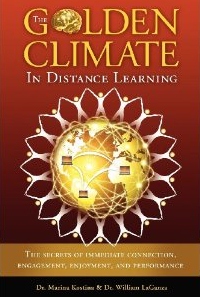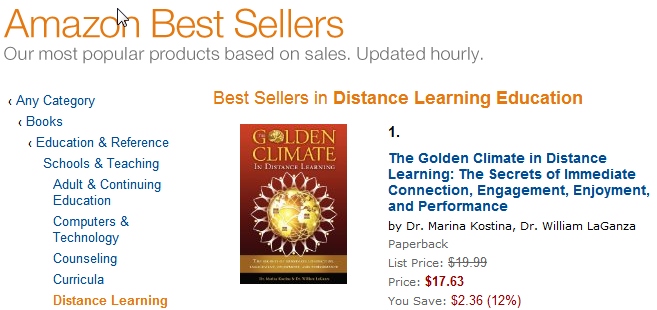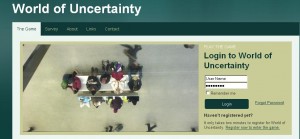Launching “The Golden Climate” of Your Online Presence
 We are all geographically unbound, mobile, and busier than ever. It is not surprising that a lot of our communication happens now long-distance or virtually – via the phone, Skype, email, texts, social media, etc. The same applies to learning and sharing our knowledge and solutions with our clients and customers. The Internet is no longer just the cherry on top of our professional brands, it is one of the main ingredients. Yet, online communication is not easy. Brains don’t just have to link, they also need to sync.
We are all geographically unbound, mobile, and busier than ever. It is not surprising that a lot of our communication happens now long-distance or virtually – via the phone, Skype, email, texts, social media, etc. The same applies to learning and sharing our knowledge and solutions with our clients and customers. The Internet is no longer just the cherry on top of our professional brands, it is one of the main ingredients. Yet, online communication is not easy. Brains don’t just have to link, they also need to sync.
If you have ever thought about sharing your expertise online through information products or online courses or looked for ways to transcend virtual distance and understand how attention and emotions work in the cyberspace, I have some good news for you. My friend and colleague of many years, back from our days at the graduate program in Linguistics, Dr. Marina Kostina and her co-author Dr. William LaGanza wrote a book, titled “The Golden Climate in Distance Learning: The Secrets of Immediate Connection, Engagement, Enjoyment, and Performance.”
The book is a guide to your effective online presence as a teacher, trainer, and an educator. It shows you how to get learners’ attention, be genuine and present online, develop rapport and provide effective feedback, create the optimal learning environment, design effective presentations and use games to increase learner performance, and also how to manage your own time and enjoy your virtual classroom, among many other things.
This book is for serious online instructors and trainers. It is well researched and engaging. In fact, Dr. Marina Kostina’s Ph.D. dissertation was about that same topic of creating effective online engagement and learning experience. She backs it up with her practical expertise of building distance learning programs in over 40 countries. Dr. William LaGanza publishes regularly in the areas of learner autonomy and distance learning. His company has spearheaded many leadership and management development applications. In addition, the book includes a number of expert interviews from a variety of fields. I am honored to be one of the professionals interviewed for the book on the topic on conflict management in virtual classrooms.
To be an effective online educator may require a shift from the traditional approaches and misconceptions about learning:
The Golden Climate therefore is not a substance that can be measuredby the amount of messages you post online, or by your time log. When you build relationships with others that support growth and autonomy while creating a sense of connection, i.e., when you build the Golden Climate, you must also be receptive to the intentions and dispositions of other people and negotiate your interactions based on these dynamics. Willing yourself to be a great teacher online will not get you to your goal. If you want to create a welcoming classroom, you must BE welcoming, not just apply welcoming strategies. If you want your students to feel comfortable sharing their ideas and thoughts online, you must BE the person who is comfortable with such sharing. If you want your students to enjoy your class, you must BE enjoying it too. Therefore, your role online changes from the giver of knowledge or “doing” to providing emotional support, building connections, and feeling the dynamics of the classroom: i.e., your role shifts to the realm of being. Certainly, if you have been teaching in a traditional way, where your role is to be authoritarian and detached and to transmit knowledge, this new way of seeing yourself requires a paradigm shift — a process that is not easily implemented and that takes time. The successful engagement, autonomy, enjoyment, and performance of your students depends on your making this shift.
We are doing the book launch on May 8, 2012 to spread the word. For more details on the book launch and how you can get a bonus e-book and have your name entered to win a Kindle, with the book purchase, click HERE.
[UPDATE] Well-deserved!


